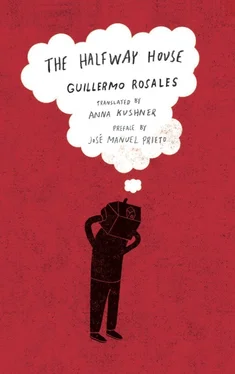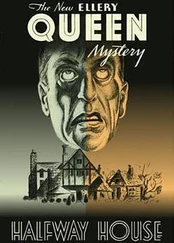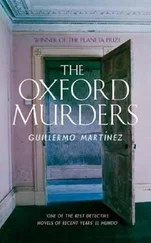“Oh my God!” she says, pressing herself against me.
“Do I look okay?” I ask her, smoothing my hair with my hands.
“I think you look okay,” she says.
“Then I’m going to talk to that woman,” I say. I stand up.
“My angel,” says Frances, looking for something in her drawer. “Take this and put it under your tongue when you go talk to that woman. It never fails.”
“What is it?”
“A cinnamon twig,” she says. “It brings good luck.”
I take it and put it in my pocket.
“I’ll do it,” I say. I take one of her hands and kiss it. I go out to the street. As I pass by Pepe, the older of the two retards, I take his bald head in my hands and kiss it. He takes my hand.
“Do you love me, little boy?” he says.
“Of course!”
He takes one of my hands and kisses it.
“Thank you, little boy,” he says, moved.
“And me? And me?” René, the other retard, asks from his chair.
“You, too,” I say.
He stands up and comes over to me, dragging his feet. He hugs me tightly. Then he laughs boisterously.
“And me, William?” asks Napoleon, the Colombian midget. “Do you love me? Am I worthy of your affection?”
“Yes,” I say. “You, too.”
Then he comes over to me and hugs me around the waist.
“Thank you, William,” he says, also moved. “Thank you for loving me, too, a sinner.”
I burst out laughing. I loosen myself from his embrace. I go out to Flagler Street.
Upon arriving at Flagler and 8th Avenue, an old American in a wheelchair asks me for a cigarette. He has a blond dirty beard and is wearing rags. He’s missing a leg.
I give him the cigarette.
“Sit down here, just a minute,” he says, taking me by the hand.
I sit on a bench, by his side.
“Have a drink,” he says, taking a bottle of plum wine out of his middle.
“No,” I say. “I have to go.”
“Have a drink!” he orders energetically. He takes a long swig and then passes me the bottle. I drink. I like it. I drink again.
“Are you a veteran of the Vietnam war?” I ask. “No,” he says. “I’m a veteran of the shit war.”
I burst out laughing.
“Okay,” I say. “But maybe you fought in the Second World War. Did you?”
“Oh, yes!” he says. “I fought in Madison Square Garden and in Disneyland, too.”
All of a sudden, he becomes angry.
“Why is it you Cubans always want to see how brave I am? Go and fight your fucking mother.”
“Sorry,” I say.
“Don’t worry,” he says, calmer. “Have a drink,” he takes another swig and passes me the bottle. I take three long swigs.
His face gets excited.
“You are a nice fellow,” he says.
“Thank you,” I say, standing up. “I have to go.” I take one of his filthy hands and squeeze tightly. A truck passes with a black American driver and a huge sign in red paint that says: “THANK YOU, BUDDY.”
I let go of the American vagrant’s hand and continue on my way to 16th Avenue. When I reach 12th Avenue, someone yells my name. I turn around. I barely recognize Máximo, an old friend who, like me, has been through various psychiatric clinics. He has lost a lot of weight and is wearing dirty, rag-like clothes. He’s barefoot.
“Máximo!” I say, shaking his hand. “What happened to you?”
“I chose to flee,” he says. “I was in a home, like you, and chose to flee. To the streets! Anywhere!”
“Máximo,” I say, “go back, damn it. You look awful.”
“Don’t tell me to go back!” he says, looking me in the eye, enraged. “I’ll think that you’re also in on the conspiracy to ruin my life.”
“What conspiracy, Máximo?”
“This conspiracy!” he announces, making a sweeping gesture with his hands. “Whores and faggots!” he says. “Everyone, whore or faggot.”
“Máximo …,” but I don’t know what else to say to him. He has chosen the street. He would rather defend what is left of his freedom than live in a home with another Curbelo, another Arsenio, another Reyes, Pepe or René.
“It’s better if you don’t say anything at all to me,” he says. “Do you have money for coffee?”
I take a quarter out of my pocket and give it to him.
“Even with all this crap,” Máximo says. “Even with all this crap, I wouldn’t ever want to return to Cuba.”
I look at him. I realize that he’s defending his freedom — his freedom to wander and destroy himself slowly. Freedom, nonetheless. I hug him. I turn on my heels and continue on my way.
I walk several blocks until I stop, at 16th Avenue, in front of a yellow two-story house. The number on it corresponds to the one in the newspaper ad. The front door is open. I go in. I look for apartment number six, where Ms. Haidee lives. Everything smells like fresh paint. It’s pleasant. I go to door number six and ring the bell. I wait. Inside, a dog barks. Then the door opens and a fat woman, about fifty years old, appears.
“Haidee?” I say. “I’ve come about the newspaper ad.”
“Come in,” she says pleasantly.
I go in. I sit on a sofa. She sits in front of me in a wicker chair. She examines my face.
“Aren’t you from Havana?”
“Yes.”
“Didn’t your family live on San Rafael street, near the Rex Cinema?”
“Yes,” I say, surprised.
“Aren’t you the son of Dr. Figueras, the lawyer whose office was near the Capitol building?”
“That’s right.”
“Isn’t your mom’s name Carmela?”
“Yes,” I exclaim, laughing.
“Kid!” she says happily. “I was your mother’s friend for many years. We used to sell Avon products together.”
“How amazing!” I say.
“Are you here about the apartment?” “Yes,” I say. “There are two of us. My wife and me.”
“Do you want to see it?”
“Yes.”
She gets up from her chair and goes over to a sideboard. She opens a drawer and takes out a bunch of keys. She smiles the whole time.
“How lucky that you were the one to come!” she says. “I don’t like renting to strangers.”
We leave. We walk down a dark hallway and stop in front of a door marked with a number two. Haidee opens the door. We go in.
“It’s magnificent!” I think upon entering.
The apartment is freshly painted. Roomy and well-lit. The kitchen is new. So is the refrigerator. There’s a full-size bed, three armchairs and a sideboard.
“Closet …,” she says, opening a large closet.
“I like it,” I say, excited. “I’ll take it.”
“Right now?” Haidee asks.
“No, tomorrow. Can you hold it for me until tomorrow?”
She smiles.
“I can,” she says. “I don’t normally do that, but for you, I’ll hold it.”
“Thank you, Haidee …”
“Your mother and I were great friends,” she says: “Great!”
She takes me by the arm.
“You won’t have any troubles here,” she says. “Everyone is very peaceful. The market is close by. And besides, I’ll be here.”
“Is electricity free, Haidee?”
“Electricity and gas,” she says. “You get everything for two hundred. But this month you have to pay one hundred dollars extra. The owner’s request,” she explains. “If it were up to me, you wouldn’t have to pay anything.”
“I know,” I say.
We talk a little while longer. About Havana, about friends in common, about her plan to travel to Cuba in the coming months. We talk about Madrid, a place where we both spent time before arriving in the United States. At last, I shake her hand.
“Okay, Haidee, expect me tomorrow afternoon,” I tell her.
She brings me close to her and kisses my cheek.
“I’m so glad to have you as a neighbor!” she says. “You’ll be fine here.”
Читать дальше












